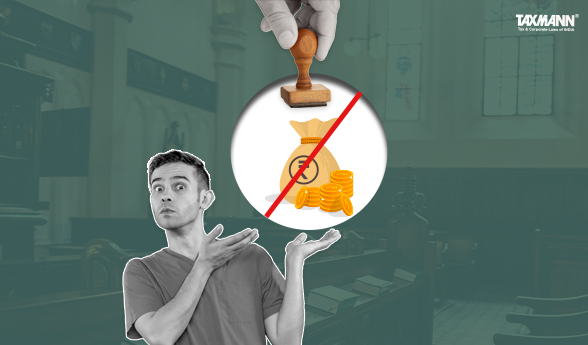No Penalty for Declaring Gain as LTCG Instead of STCG if Entire Tax Was Paid Before Assessment Order | HC
- News|Blog|Income Tax|
- 2 Min Read
- By Taxmann
- |
- Last Updated on 8 April, 2024
 Image
Image
Case Details: Vijay Bhagwandas Raheja vs. Deputy Commissioner of Income-tax - [2024] 160 taxmann.com 684 (Bombay)
Judiciary and Counsel Details
- K.R. Shriram & Dr Neela Gokhale , JJ.
- K. Gopal, Ms Neha Paranjape & Akhilesh Deshmukh for the Appellant.
- Akhileshwar Sharma for the Respondent.
Facts of the Case
The assessee declared the gain arising on the sale of a property as a long-term capital gain. Subsequently, the assessee, having noticed that the gain should have been shown as a short-term capital gain because he had claimed depreciation for the said property in earlier assessment years. He filed a revised computation of total income declaring short-term capital gain and paid the entire capital gain tax thereon.
Considering it to be furnishing of inaccurate particulars of income, the Assessing Officer (AO) passed the assessment order after the assessee furnished a revised computation of income and levied the penalty upon the assessee under section 271(1)(c).
On appeal, the CIT(A) allowed the assessee’s appeal, but the Tribunal reversed it.
The matter then reached before the Bombay High Court.
High Court Held
The High Court relied upon the Supreme Court judgement in CIT v. Reliance Petroproducts (P.) Ltd. [2010] 189 Taxman 322/322 ITR 158, and held that to be covered under the provisions of section 271(1)(c), there has to be concealment of the particulars of the income of the assessee or assessee must have furnished inaccurate particulars of his income. The entire basis is that by initially filing the return of income showing the gain made from the sale of the property as long-term capital gain, the assessee has furnished inaccurate particulars of income.
Admittedly, the assessee had shown correct sale consideration of the property and the correct cause of depreciation in the return of income, so no income as such has been concealed. The only thing that the assessee did was claim a particular income (capital gain) under a different head, namely, under long-term capital gain as against short-term capital gain.
No information given in the return was found to be incorrect or inaccurate. The assessment order was passed after the assessee furnished the revised computation of income. It was not as if any statement made or any detail supplied was found to be factually incorrect. Submitting an incorrect claim in the law of long-term capital gain would not be tantamount to furnishing inaccurate particulars.
The sum and substance of the assessee’s case was that he had neither concealed any income nor furnished any incorrect particulars of such income. It was claimed that it was done under the bona fide belief that the asset was a long-term asset as it was held for more than three years. In any event, the entire short-term capital gain was paid even before the assessment order was passed.
Therefore, such a claim made in the return cannot amount to furnishing inaccurate particulars.
List of Cases Reviewed
- Tribunal’s order in Dy. CIT v. Vijay Bhagavandas Raheja, Raheja Chambers [IT Appeal No. 2768 (Mum.) of 2014, dated 16-12-2015] (para 10) set aside.
- CIT v. Reliance Petroproducts (P.) Ltd. [2010] 189 Taxman 322/322 ITR 158 (SC) (para 5) followed.
List of Cases Referred to
- CIT v. Reliance Petroproducts (P.) Ltd. [2010] 189 Taxman 322/322 ITR 158 (SC) (para4).
Disclaimer: The content/information published on the website is only for general information of the user and shall not be construed as legal advice. While the Taxmann has exercised reasonable efforts to ensure the veracity of information/content published, Taxmann shall be under no liability in any manner whatsoever for incorrect information, if any.



 CA | CS | CMA
CA | CS | CMA
